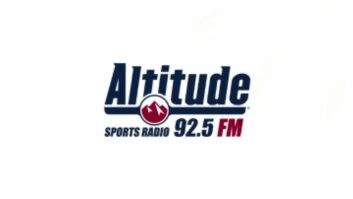FCC proposes overhaul of AM/FM allocation standards
Jun 1, 2009 12:00 PM, By Harry Martin
The FCC is proposing major changes in the way it allocates new AM and FM stations, as well as new rules governing metropolitan area move-ins. The core changes deal with the priorities applied under Section 307(b) of the Communications Act when proposals for new stations or community changes are being considered. Here are some of the highlights of the FCC’s proposal:
- Except in extraordinary circumstances, no first local service priority would be awarded to proposed AM or FM facilities which would (or could) place a principal community signal over the majority of an Urbanized Area.
- Generally, no dispositive Section 307(b) preference would be awarded to new or major change AM applications on the basis of superior population coverage.
- A new “underserved listeners” priority would be created for any AM auction and FM allotment proposal that would provide a third, fourth or fifth aural reception service to a “substantial portion” of the proposed service population. A substantial portion could be 15, 25, 35 or 50 percent of the proposed service population depending how the Commission ultimately decides this issue.
- A prohibition on city-of-license changes that create white or gray areas (i.e., areas with zero or one reception service, respectively).
- Any move-in application proposing a first local service to a community would be treated as if it were proposing service to the entire Urbanized Area if the proposed facility would or could place a daytime principal community signal over 50 percent or more of the Urbanized Area.
- A new 307(b) allotment priority for Native American tribes.
- A four-year prohibition on modifications to AM facilities awarded pursuant to a dispositive 307(b) preference if the proposed change would result in a loss of service to the originally-proposed service area and population.
Auction ChangesThe FCC’s rule making also proposes the following changes to its auction procedures: - Applicants in AM auctions would have to, at the time of filing, meet basic technical eligibility criteria, including community of license coverage (day and night), and protection of co- and adjacent-channel stations and prior-filed applications (day and night). Amendments to correct such basic defects would not be entertained.
- To head off speculative applications, the FCC is proposing to put caps on AM auction applications � perhaps a maximum limit of five applications per applicant per window. (This would not apply to commercial FM auction applications because FM applicants cannot avoid an auction by winning a threshold 307(b) preference.)
- The FCC is proposing to formalize the Bureau’s practice of permitting non-universal technical amendments and settlements provided the amendment or settlement creates at least one grantable application.
- In light of the difficulty some applicants have had in securing suitable sites after an auction win, the FCC is proposing to relax its current 30-day filing deadline for post-auction long-form applications.
- For purposes of awarding new entrant bidding credits, the FCC wants to make it clear that the contour of a proposed new FM broadcast facility will be defined by the maximum class facilities at the allotment site, as opposed to the tech box facility, and that any new interests acquired prior to CP grant will be considered in calculating the credit.
DatelineAugust 1 is the deadline for submission of biennial ownership reports by radio stations in California, North Carolina and South Carolina.August 1 is the deadline for radio stations in California with more than 10 full-time employees to electronically file their Broadcast EEO Mid-Term Reports (Form 397) with the FCC.August 1 is the deadline for radio stations licensed in the following states to place their annual EEO Reports in their public files: California, Illinois, North Carolina, South Carolina and Wisconsin.Martin is a member of Fletcher, Heald & Hildreth, PLC, Arlington, Virginia. E-mail:[email protected]







